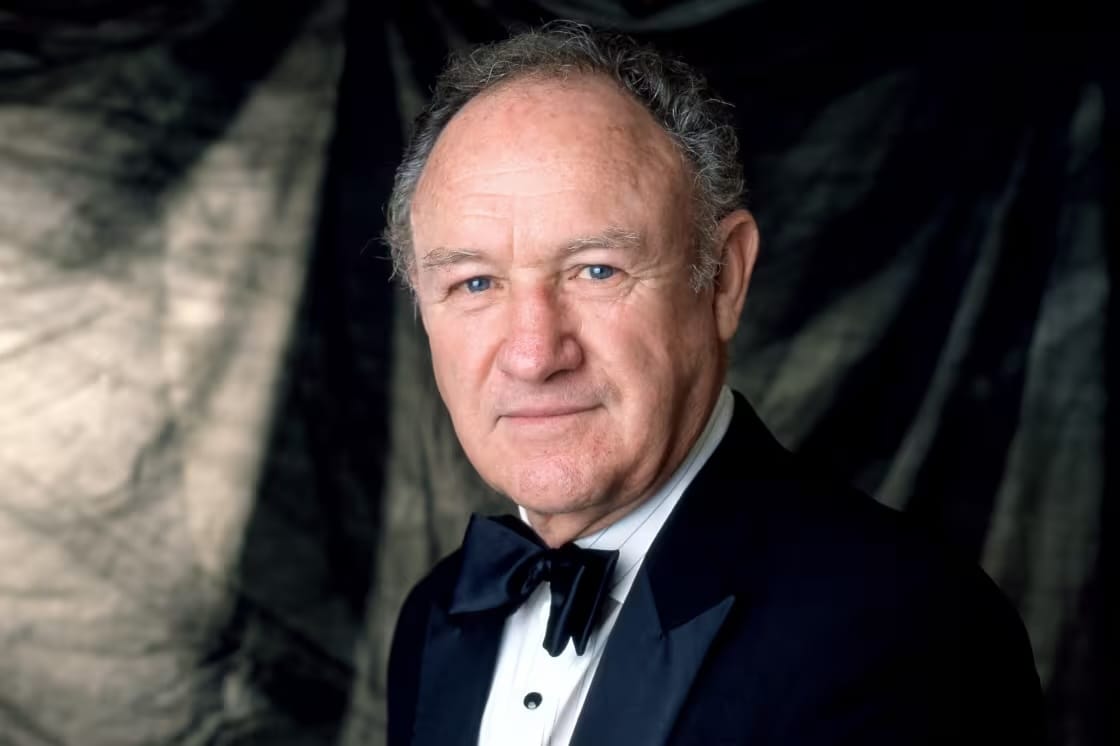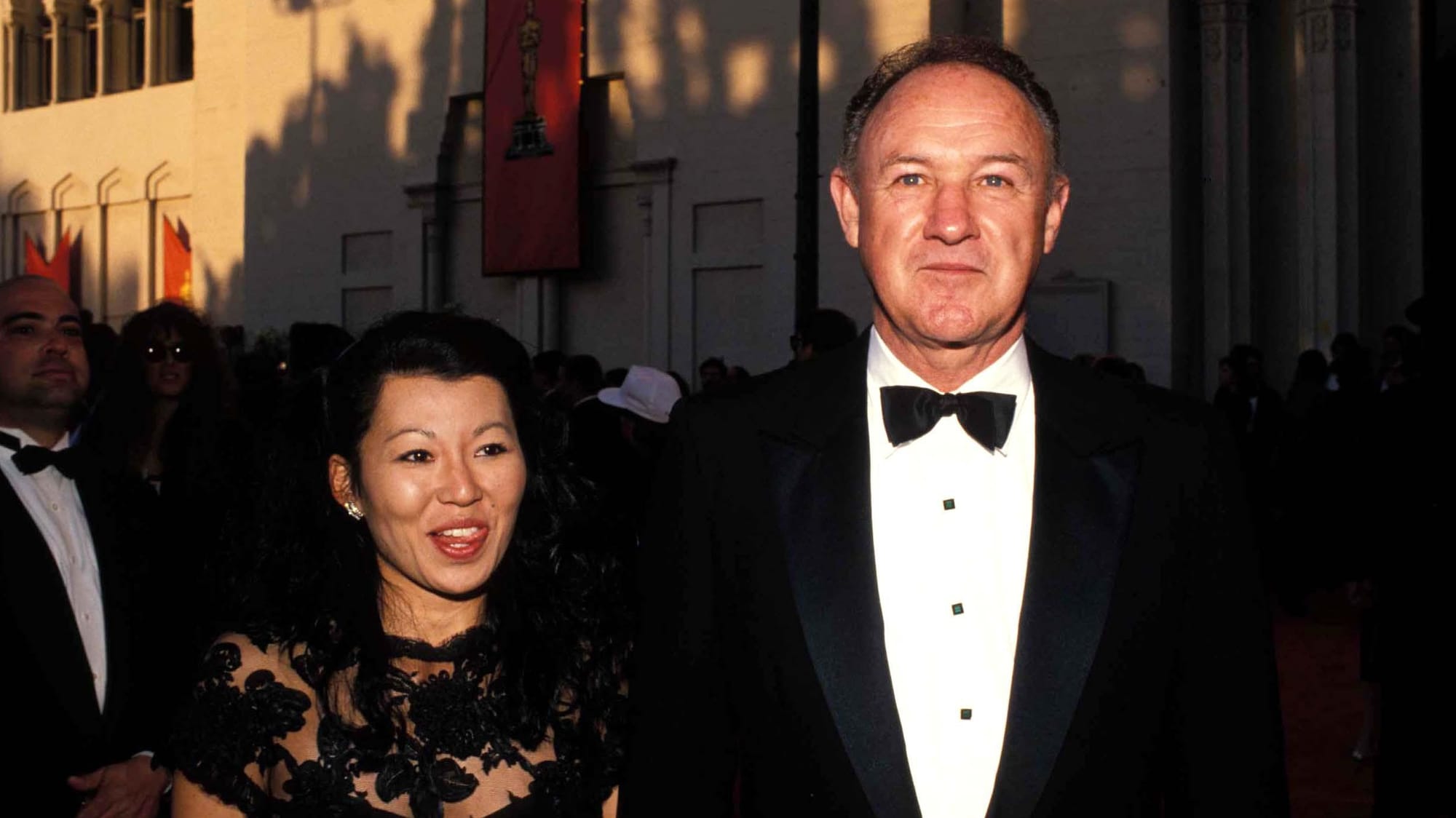Gene Hackman: Hollywood’s most unforgettable everyman

Gene Hackman, the quintessential actor’s actor, has passed away at the age of 95. He and his wife, Betsy Arakawa, were found deceased in their Santa Fe home, alongside their beloved dog. The Santa Fe County Sheriff’s Office has initiated an investigation, though no immediate signs of foul play have been reported. As the film industry mourns the loss of this remarkable talent, it’s an apt moment to reflect on the man behind the myriad characters he portrayed.
Born Eugene Allen Hackman on January 30, 1930, in San Bernardino, California, Hackman’s early life was anything but glamorous. His parents’ separation led him to a peripatetic childhood, eventually settling with his English-born grandmother in Danville, Illinois. At 16, driven perhaps by a desire for stability, he enlisted in the U.S. Marine Corps, serving as a radio operator. This period instilled in him a discipline and resilience that would later underpin his acting career.
After his military service, Hackman’s path to stardom was neither straight nor smooth. He dabbled in various jobs before a burgeoning interest in acting led him to the Pasadena Playhouse. It was here that he formed a lifelong friendship with fellow actor Dustin Hoffman. Both were voted “least likely to succeed” by their peers—a stark misjudgment in hindsight. Undeterred, Hackman moved to New York City, immersing himself in the theatre scene and gradually making inroads into television and film.
Hackman’s breakthrough came with his role as Buck Barrow in Bonnie and Clyde (1967), earning him an Academy Award nomination for Best Supporting Actor. This accolade was a precursor to his Oscar-winning performance as Detective Jimmy “Popeye” Doyle in The French Connection (1971). Hackman’s portrayal of Doyle, a gritty and relentless narcotics officer, showcased his ability to delve deep into complex, often flawed characters. Film critic Peter Bradshaw aptly noted, “Hackman was the gold standard for this era… the star of every scene he was in.”
Beyond his professional achievements, Hackman was known for his humility and generosity. Actor Kevin Costner recounted a personal anecdote: “I remember as I was walking out to my car on the MGM lot, Gene was getting in and he goes, ‘Hey, I’m going to talk to you.’” This willingness to mentor and connect with fellow actors speaks volumes about his character.
Hackman’s versatility was evident in the diverse roles he embraced. In The Conversation (1974), he delivered a nuanced performance as Harry Caul, a surveillance expert grappling with the moral implications of his work. The film delves into themes of privacy and paranoia, with Hackman’s restrained portrayal anchoring the narrative. Similarly, in Hoosiers (1986), he transformed into Coach Norman Dale, leading a small-town basketball team to improbable success. These roles, among many others, highlight his chameleon-like ability to inhabit characters without resorting to dramatic physical transformations.

Despite his on-screen intensity, those who knew Hackman describe him as approachable and grounded. He eschewed the trappings of Hollywood, choosing instead to lead a life away from the limelight. After retiring from acting in 2004, he pursued passions such as piloting, scuba diving, writing, and painting. Settling in Santa Fe, New Mexico, he found solace in the tranquillity it offered, far removed from the industry’s hustle and bustle.
While Hackman was never one to court political controversy, he was known for his progressive leanings. Though he kept his views largely private, he occasionally lent his voice to causes that mattered to him, particularly those related to veterans’ rights and social justice. He was openly critical of certain aspects of American foreign policy, and his background in the military likely informed his perspectives on war and government intervention. While he never aligned himself overtly with a political party, his interviews and personal choices reflected the mind of a man who valued fairness and integrity, both on and off the screen.
Financial struggles were also part of Hackman’s journey—particularly in the early years. Before he broke through as an actor, he endured long periods of financial instability, working odd jobs to make ends meet. There were moments when he nearly quit the industry altogether, frustrated by rejection and the precariousness of an actor’s life. Even after Bonnie and Clyde put him on the map, it took years before he found true financial security. Hollywood is known for its cruel cycles of success and failure, and Hackman was not immune.
He later spoke candidly about the pressures of sustaining a career in Hollywood and the financial uncertainties that actors—even successful ones—face. Unlike many of his contemporaries who chased commercial success, Hackman remained selective about his roles. This meant occasional lulls in his career and financial worries that never entirely faded. However, his decision to retire in 2004 was not out of financial necessity but rather a conscious step away from an industry that he felt he had given enough to. He once said that acting was “a job I did for many years, and I was very lucky to have had it. But there were other things I wanted to do.”
Hackman’s literary pursuits led him to co-author several historical fiction novels, showcasing yet another facet of his creative talent. This transition from screen to pen underscores his lifelong commitment to storytelling in its various forms. For a man who had spent decades bringing other people’s words to life, it was fitting that he found his own voice in his later years.
In reflecting on Hackman’s legacy, it’s evident that his strength lay in his authenticity. He approached each role with a craftsman’s dedication, eschewing vanity and focusing solely on the truth of the character. This commitment resonated with audiences, allowing them to see the humanity in even his most hardened characters.
As the film community and fans worldwide come to terms with his passing, Gene Hackman’s body of work stands as a testament to a life dedicated to the art of performance. His ability to seamlessly blend into his roles, coupled with his off-screen humility, paints the picture of a man who, despite his fame, remained ever true to himself.
In an industry often characterised by artifice, Hackman was a beacon of authenticity. His performances were devoid of pretense, grounded in a reality that made even the most extraordinary characters relatable. As we bid farewell to this cinematic titan, we celebrate not just the roles he played, but the man he was—a true craftsman whose legacy will undoubtedly endure.
